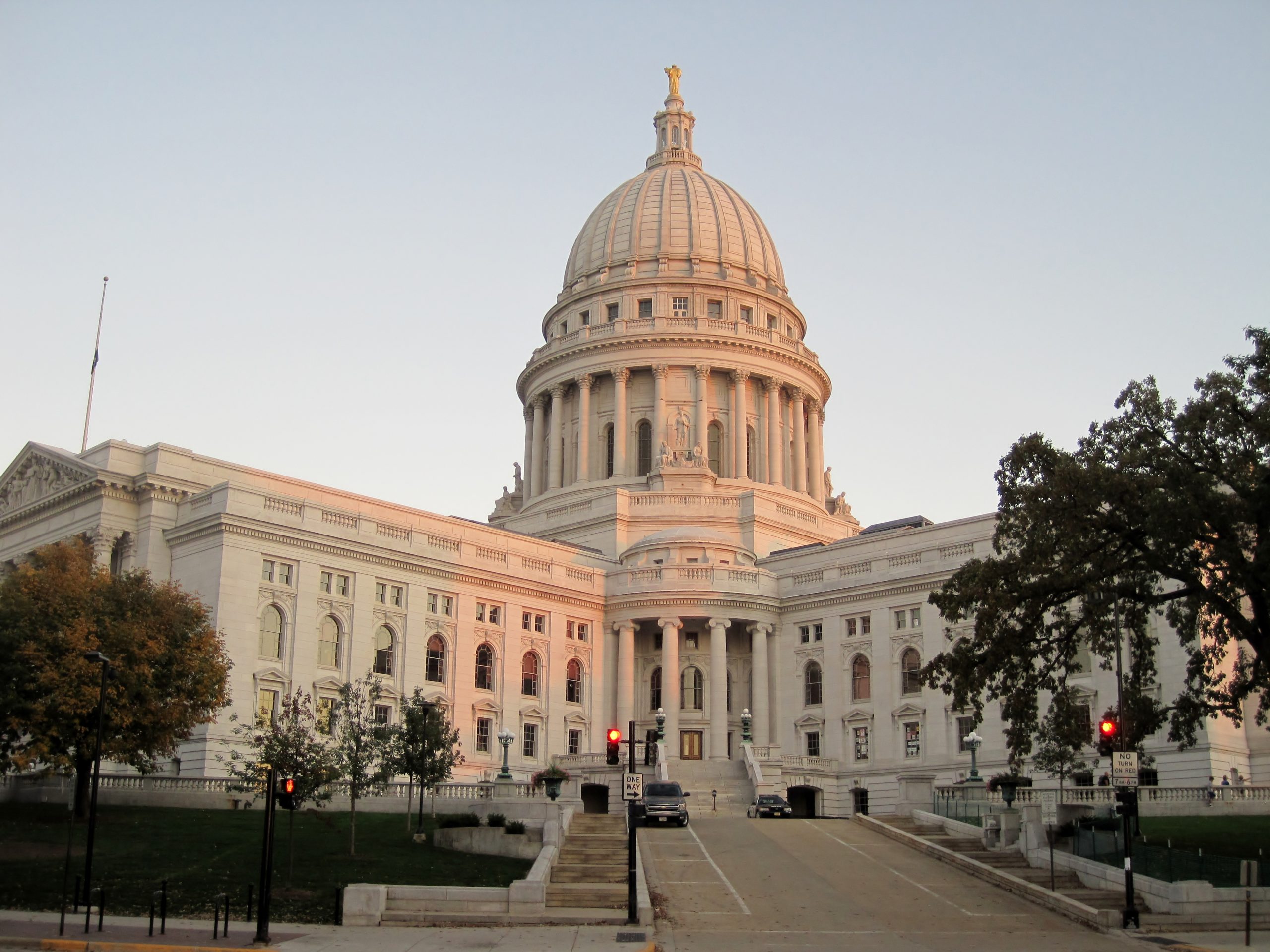In the Documents: Partisan Communications Between Wisconsin Elections Commission Members and State Lawmakers
One memo includes a proposal to allow the state — currently the subject of voter-purge lawsuit — to remove voters from the rolls more regularly.

Wisconsin’s April 7 primary election made headlines when, despite federal health guidelines advising against gatherings of any kind, voters were forced to wait for hours in long lines. Less than a day before the polls opened, the state supreme court voted to overturn Gov. Tony Evers’ postponement of the election and the U.S. Supreme Court overturned a district court opinion that gave voters more time to mail in ballots.
Forcing an in-person election was widely condemned as an attempt to suppress voter turnout, another move in a long line of voter-suppression tactics that Wisconsin voters have had to endure. Last year, a right-leaning law firm in Wisconsin filed a lawsuit to have more than 230,000 voters removed from the state’s voter rolls because those voters had not responded to a “mover mailer” that asked them to update their voter information. Analysis by the Guardian found that “voters in zip codes that were predominantly black or heavily populated by students were nearly twice as likely to be flagged for removal.”
While these voters were ultimately allowed to remain registered for the April primary, American Oversight’s investigation into this purge has uncovered troubling behind-the-scenes communications that reveal between members of the bipartisan Wisconsin Elections Commission (WEC) and state lawmakers.
December 2019 emails of WEC Commissioner Dean Knudson and Assembly Speaker Robin Vos include a proposal to purge voters from the rolls more regularly. In one memo, Knudson recommended that Vos introduce legislation that would strengthen the WEC’s authority to purge voters. The proposed bills would mandate that the commission send out mover mailers every year, as opposed to every four years. The commission would also rely on lists of duplicate names from the Electronic Registration Information Center, a nonprofit, independent voter roll administrator, to make purges, even over objections from local election clerks. Another email shows Knudson contacting a Republican campaign official who used to work for Vos regarding a potential ethics violation of a Democrat running for a State assembly seat.
“Dean Knudson is there because Republicans trust him to toe their party line,” said Mike Browne, deputy director of One Wisconsin Now, a progressive watchdog group. “And that is exactly what he’s doing — advocating for more voter roll purges and pushing an alleged ethical violation by a Democratic Assembly candidate to the attention of the Republicans who run their campaigns.”
Knudson is not the only WEC commissioner who has attempted to coordinate with state legislators. Emails and texts from the office of Wisconsin Senate Majority Leader Scott Fitzgerald reveal that Commissioner Robert Spindell — who falsely argued that the purge list contained names of voters who had died — shared recommendations with Fitzgerald related to the WEC’s operations. While they address administrative issues, the messages, along with Knudson’s, point to potential coordination between the WEC and state legislators — a troubling, if not surprising, issue given the commission’s purposefully bipartisan split in member appointments so as not to become a partisan weapon.
Additionally, the records we obtained showed some discrepancies between what the different legislative offices provided in response to our requests. We submitted nearly identical records requests to both Vos’ and Fitzgerald’s offices for communications with representatives of the Wisconsin Institute for Law and Liberty (WILL), the law firm that brought the voter-purge complaint to court. Vos’ office responded with 239 pages of emails spanning June 2019 to January 2020, including mass email blasts and letters from WILL to the Assembly. But Fitzgerald’s office produced only three pages, containing two December 2019 emails from WILL’s executive vice president. In comparison with the high-volume production from Vos’s office, the response from Fitzgerald’s office raises questions about whether the majority leader’s office was sufficiently forthcoming.
Voter suppression takes many forms, from voter purges and strict voter-ID laws to polling place closures and strict limits on absentee voting, a threat that takes on added significance as the nation continues to fight a deadly pandemic. Wisconsin’s conservative legislators seem intent on restricting voting access, pulling out all the stops to make it a burden for Wisconsinites to vote. American Oversight will continue to investigate every obstacle that impedes the vote, in Wisconsin and elsewhere.